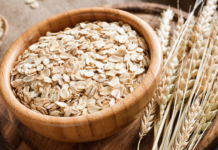Sponsored by: Renadyl™
When a person with kidney failure begins outpatient hemodialysis, they are introduced to a variety of members on their dialysis team. One of those members are a renal dietitian. So, what exactly does a kidney dialysis dietitian do once you start outpatient hemodialysis? The dietitian is there to help you understand that eating on a renal diet can be pleasurable. The renal dietitian has a wide variety of knowledge and can assist you with a variety of nutrition issues including diabetes and heart disease. When you begin outpatient dialysis your dietitian should meet with you soon after you start and then at least monthly to review your dietary plan and laboratory values.
When you begin dialysis, your dietitian will meet with you to get to know your individual nutrition history, eating habits, special nutrition needs or concerns, and to develop a nutrition plan with goals specifically for you. Dietitians are knowledgeable in kidney disease and the diet for hemodialysis or peritoneal dialysis. Many dietitians provide patients with individualized nutrition education and information to help patients stay as healthy as possible. Various dietitians display educational materials on bulletin boards and hand out nutritional education flyers for patients. Be sure to take advantage of this educational material at your dialysis center if available.
In addition, each month the dietitian should analyze your blood work and review it with you. This should help you understand the best foods to eat and the importance of taking your medications correctly so you will be your healthiest. The dietitian can also help refer you to the other members of your dialysis team as necessary for social or medical issues. Dietitians are also responsible for thoroughly reviewing and completing your nutritional status each year. This assessment reviews changes in your nutrition status over the previous year and highlights areas that may need attention. In conclusion, each month your doctors, nurses, social workers, and dietitians should be meeting with you to make sure you are receiving the best care possible. At this time the dietitian will communicate your nutritional status and needs to the team. As always if you have any questions about your dietitian and nutritional needs consult with your kidney doctor.
Learn more about our sponsor Renadyl here https://bit.ly/3sZDWbb
About the author
Steven Belcher, RN, MSN, MS, is a dedicated kidney advocate who began his journey 20 years ago as a dialysis nurse. This job inspired him to help as many people with kidney disease as he could. Not only did he spend two decades caring for a patient’s physical and emotional needs in a clinical setting, but he also educated the public on the risk factors of kidney disease. Some of his many philanthropic successes include being a keynote speaker at the National Association of Nephrology Technicians/ Technologists (NANT), presenting at community spaces, and launching radio shows.
He now focuses his time entirely on his organization Urban Kidney Alliance, which educates the public about kidney disease. His goal? To lower rates of Chronic Kidney Disease in urban communities in Baltimore, Maryland, across the country, and globally through education and collaboration.
Steve has also written the book “HOW TO SURVIVE OUTPATIENT HEMODIALYSIS: A GUIDE FOR PATIENTS WITH KIDNEY FAILURE.” You can read the book review here.
*These statements have not been evaluated by the US Food and Drug Administration. This information is not intended to diagnose, treat, cure, or prevent any disease. Always consult with a qualified healthcare professional prior to beginning any diet or exercise program or taking any dietary supplement. The content on our website is for informational and educational purposes only.




